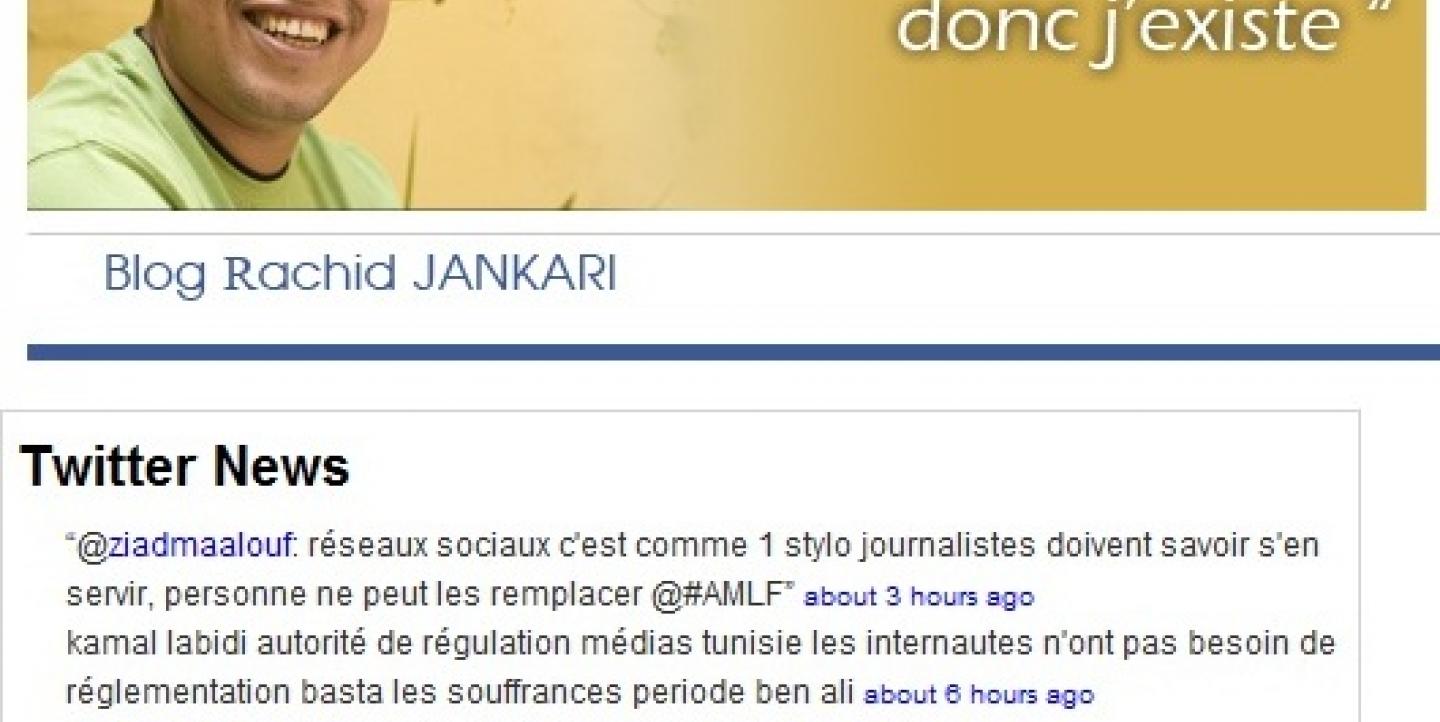When things get tough for print journalists, they move to online media. Journalists in Morocco, where half of the population regularly uses the Internet, have migrated online to work around increasing government restrictions.
In 2008, when the government tried to muzzle the traditional press, blogs and then social media like Twitter and Facebook mobilized Moroccans to share information about freedom of the press and similar issues. Now online media play a supporting role for journalism as a place where journalists can publish their work if they are hassled or threatened.
IJNet interviewed Rachid Jankari, a Moroccan journalist, ICT expert and new media consultant. Jankari shared some thoughts about social media’s role in his country.
Jankari was an early adopter on the Moroccan blogging scene who used social media to talk about corruption, press freedom and political change. He writes a blog in French called Je partage, donc J'existe which means "I share, therefore I exist."
IJNet: What role does social media have in Morocco in an era when lots of Arab countries are witnessing uprisings that social media were apart of in one way or another?
RJ: Social media in Morocco have opened new doors for average people to express their opinions. Everyone in Morocco now can write, video blog and share information about issues that interest them. We've been moving from blogging to micro-blogging as micro-blogging platforms get more attention.
IJNet: Just about everywhere, traditional and online media are in competition. It that also true in Morocco?
RJ: Not at all. In Morocco, it’s the opposite. Print journalists in Morocco are under pressure from the government. The government controls press freedom through financial means: controlling ads and revenue of print media. This has been used a lot. Most print media found their way to the web since its cheaper and more open. Social media is the same, it has been the place for all those people who can’t write or publish their work.
IJNet: But doesn't the government restrict online media, too?
RJ: It's different in Morocco because we have a high number of a Internet users. There are 16 million Internet users in a country 30 million people. There are four million Facebook users and 400,000 3G subscribers. With these numbers, blocking information from online platform is very hard and not a smart idea.
IJNet: Does the critical mass of Internet users really help media and press freedom? There are a lot of places with high Internet penetration but that doesn't necessarily mean more freedom for journalists (or even citizen journalists) to write.
RJ: Traditional media in Morocco have become less courageous. That pushed them to the online platforms, as I mentioned. But that gives social media a larger role, not only defending press freedom, but defending general freedoms. Social media has become really the fifth estate in Morocco since traditional media haven’t been able to play its role.
In other words, freedom of the press in Morocco has become a part of the online freedom. The challenge today is to keep the online freedom since it can protect press freedom and provide journalists with more space.

